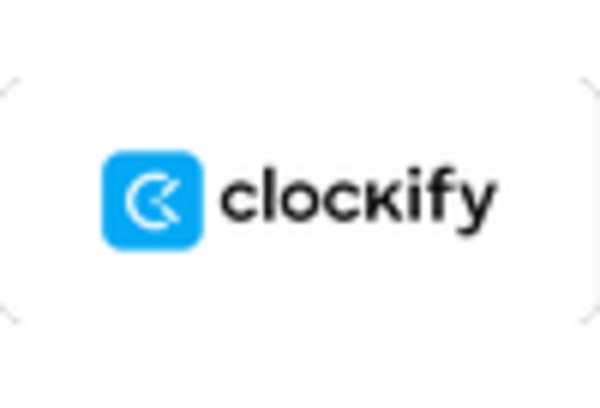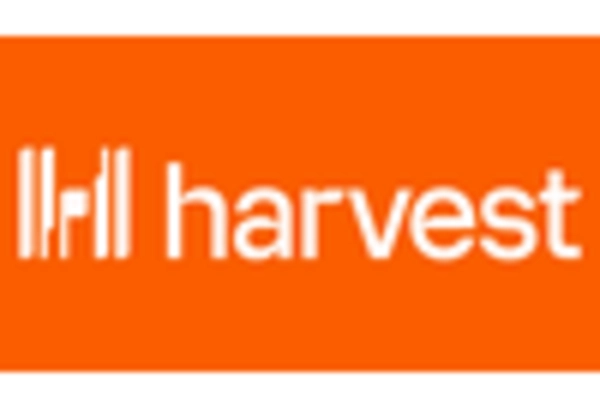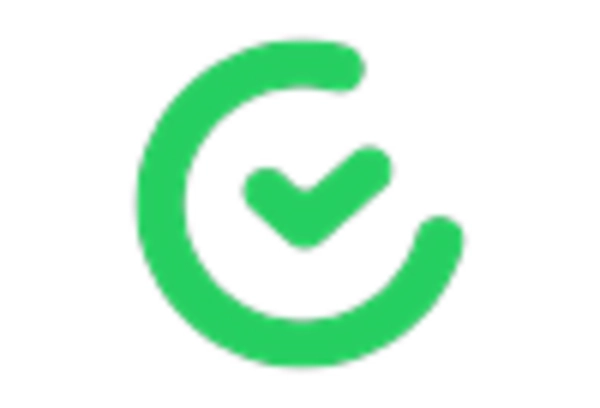Growing Focus on Data Security
Data security concerns are increasingly shaping the time tracking-software market in the GCC. With the rise of cyber threats, organizations are prioritizing software solutions that offer robust security features to protect sensitive employee data. A significant portion of businesses, approximately 60%, is now investing in time tracking solutions that comply with stringent data protection regulations. This focus on security not only safeguards company information but also builds trust among employees. As the demand for secure software solutions continues to grow, the time tracking-software market is likely to adapt by enhancing its security protocols and features.
Emphasis on Employee Productivity
In the GCC, there is a growing emphasis on enhancing employee productivity, which significantly influences the time tracking-software market. Organizations are increasingly recognizing the correlation between effective time management and overall productivity levels. A recent survey indicated that 70% of businesses in the region are investing in time tracking solutions to monitor employee performance and optimize workflows. This focus on productivity is prompting software developers to innovate features that provide insights into time allocation and task completion rates. Consequently, the time tracking-software market is likely to expand as companies prioritize tools that support productivity enhancement.
Shift Towards Mobile Accessibility
The shift towards mobile accessibility is a prominent driver in the time tracking-software market. In the GCC, there is an increasing reliance on mobile devices for work-related tasks, prompting software developers to create mobile-friendly applications. This trend is evidenced by a reported 40% increase in mobile app usage for time tracking purposes among employees. Organizations are recognizing the need for flexibility, allowing employees to log hours and manage tasks on-the-go. As mobile accessibility becomes a standard expectation, the time tracking-software market is poised for growth, catering to the evolving needs of a mobile workforce.
Rising Demand for Remote Work Solutions
The time tracking-software market is experiencing a notable surge in demand for solutions that facilitate remote work. As organizations in the GCC region increasingly adopt flexible work arrangements, the need for effective time management tools becomes paramount. This shift is reflected in a reported growth rate of approximately 15% in the adoption of time tracking software among remote teams. Companies are seeking software that not only tracks hours worked but also integrates seamlessly with communication platforms. This trend indicates a broader acceptance of remote work culture, which is likely to persist, thereby driving the time tracking-software market forward.
Integration with Financial Management Systems
The integration of time tracking software with financial management systems is becoming a critical driver in the time tracking-software market. In the GCC, businesses are seeking comprehensive solutions that link time tracking with budgeting and payroll processes. This integration allows for more accurate billing and resource allocation, which is essential for project-based industries. Reports suggest that companies that utilize integrated systems experience a 20% reduction in administrative costs. As organizations strive for efficiency, the demand for time tracking software that offers seamless integration with financial tools is expected to rise, further propelling market growth.















